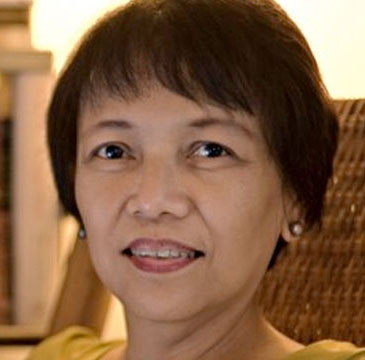SUMMARY
This is AI generated summarization, which may have errors. For context, always refer to the full article.

The mid-term election campaign should be defined by one issue: equity.
Senatorial and congressional candidates need to address the big challenge of how we can make the poor enjoy the benefits of our economic growth and pull them out of the margins.
As Cielito Habito, our former planning secretary, put it, “The economy is indeed breaking out. We appear to be truly taking off…but age-old and more recent weaknesses remain, borne out of growth that has persistently been non-inclusive.”
Take a look at these numbers. For the years 2010 to 2012, the average annual growth rate of our GDP, according to the National Statistical Coordination Board, was 5.9%, an improvement from 4.9% from 2004 to 2009.
Construction boomed to 12.4% (2010-2012) from 4.3% (2004-2009). Exports leaped from an average of 3.5% to 10%. Manufacturing grew from 3% to 7.5%.
Despite this uplifting picture, Habito points out the disturbing fact that only a few benefited the most: “The rise in wealth of the 40 richest Filipinos in 2011 equaled 76% of the total growth in income of all Filipinos.”
It wouldn’t be a stretch to say that the mega-wealthy in our country comprise a tiny 1%. That leaves many of us struggling, in various degrees, to remain in the middle class while the rest are stuck at the bottom.
One issue fits all
Equity casts a wide net and covers gut issues such as access to health, education, jobs, business opportunities and political participation. Equity applies to big, medium, and small businesses by providing a level playing field for all. Equity means opening up the political field to non-dynastic, un-minted but meritorious names.
Candidate Risa Hontiveros said it well in a recent forum on health: “It’s time to look at Part Two of the promise of Matuwid na Daan – the issue of equity. The dividends of the Daang Matuwid should also go to improvements in our health care.”
Substitute the phrase “health care” for credit system, access to information, political system, and various other pressing problems and you’ve got the issue tightly locked in.
Hontiveros looks at health care as a “yardstick of inequality: those who do not have much in life are those who are the ones more deprived of health care.”
While she recognizes the gains under the Aquino administration such as wider coverage of Philhealth (85% of our population are covered), Hontiveros advocates scaling up government spending for services in public health facilities.
In other areas, a small farmer or entrepreneur cannot borrow a few thousand pesos from a government bank to grow his livelihood, Habito points out, in contrast to a “top billionaire who can borrow hundreds of millions and make fabulous profits from it.”
Catch up
The Philippines is actually playing catch up in the equity field. Thailand, whom Habito describes as an “estranged twin,” is much ahead of us. Our neighbor’s 40 richest accounted for 33.7% of wealth growth (compared to 76% in our case).
Remember that Thailand and the Philippines had the same population of 36 million in 1970. Fast forward to 2009: Thailand had 66 million while we ballooned to 92 million. Now, Thailand has a healthier economy and a more robust industrial sector, among other indicators.
Malaysia has sprinted and is way ahead, with its top 40 wealthiest accounting for only 5.6% of income growth.
Glaring disparities
This gap between the rich and poor in our country is always visible, especially to foreign eyes. An American fund manager who lives in Southeast Asia and visits Manila occasionally is always struck by the glaring disparities in wealth here. It seems like a cliché but Forbes Park and Baseco are the contrasts that catch the attention of foreign guests.
During his recent visit, we exchanged notes and he told me that the economic figures are much better today. But he showed unease about the persistent poverty.
Over buffet breakfast at a 5-star hotel, I explained to him the centerpiece anti-poverty program of the Aquino government, the conditional cash transfer program inspired by Mexico and Brazil, where they were successes. But my word of caution was that those who will graduate from the CCT still need to be absorbed by a massive livelihood program—which I don’t see yet.
After a brief pause, he then asked me, “How did you make it?”
I was surprised by the question. But I reminded him that like others, I’m part of the thin middle class and still hanging on. My parents were able to send me and my siblings to the university. Those without means rely on scholarships while others never make it to college.
Many families, I told him, “adopt” the children of their household help and send them to school. That’s a personal network which, if multiplied many times over, can help reduce inequity. But the more significant contribution should come from our policy-makers.
The election campaign is a good time to put the equity issue on center stage. – Rappler.com
Add a comment
How does this make you feel?
There are no comments yet. Add your comment to start the conversation.